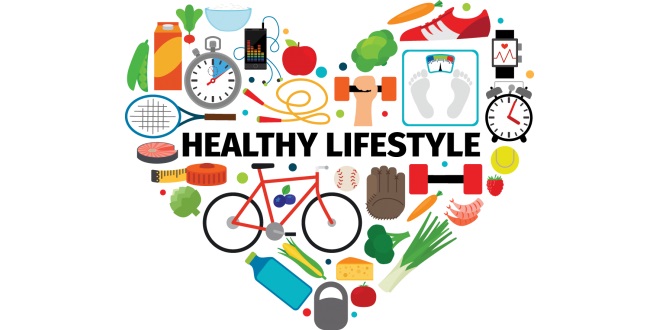Alcohol and Stress: Understanding the Relationship and Seeking Healthy Coping Mechanisms
In the realm of stress management, many individuals turn to alcohol as a means of relaxation or escape. It has actually become more normal to use alcohol during times of stress than to not. On social media, there are many memes and posts joking about the use of alcohol to get through a day with your kids or to survive the 40-hour workweek. However, while alcohol may temporarily alleviate stress symptoms, its long-term effects can exacerbate mental health issues and contribute to a cycle of dependency. For many people with anxiety prolonged use of alcohol becomes like throwing gas on a fire, and alcohol is a nervous system depressant. It WILL worsen the symptoms of depression. Therefore, understanding the intricate relationship between alcohol and stress is crucial for fostering healthier coping mechanisms and promoting overall well-being.
The Immediate Relief: It’s no secret that alcohol can provide a sense of immediate relief from stress. A glass of wine after a long day or a cocktail at a social gathering can feel like a welcome reprieve from life’s pressures. This temporary relaxation occurs because alcohol affects neurotransmitters in the brain, such as gamma-aminobutyric acid (GABA), which produces calming effects, and dopamine, which induces feelings of pleasure.
However, it’s essential to recognize that this relief is often short-lived and superficial. While alcohol may temporarily dull the sensations of stress, it does not address any underlying issues. In fact, relying on alcohol as a coping mechanism can lead to a vicious cycle, wherein increased stress prompts greater alcohol consumption, which in turn can worsen stress levels and mental health.
The Long-Term Impact: Beyond its immediate effects, regular alcohol consumption can have significant long-term consequences for mental and physical health. Chronic alcohol use disrupts the delicate balance of neurotransmitters in the brain, leading to changes in mood regulation and cognitive function. Over time, this can contribute to the development of mental health disorders such as anxiety and depression. Basically, your brain and the body can forget how to manage stress without it; if the drinking starts early, it may never develop the ability at all.
Moreover, alcohol is known to interfere with sleep patterns, further compromising overall well-being. Poor sleep quality can perpetuate feelings of stress and anxiety, creating a detrimental cycle that is difficult to break without help.
Breaking the Cycle: To break free from the cycle of alcohol and stress, it’s essential to explore healthier coping mechanisms. Rather than regularly turning to alcohol, consider incorporating the following strategies into your daily routine, especially during times of heightened stress:
1. Mindfulness and Meditation: Practicing mindfulness techniques, such as deep breathing exercises or guided meditation, can help calm the mind and reduce stress levels naturally. Please note: these “practices” require repetition, especially during times of low stress, in order to provide relief during times of heightened stress. Mindfulness helps individuals develop a greater awareness of their thoughts and emotions, allowing them to respond to stress in a more constructive manner.
2. Physical Activity: Engaging in regular exercise is one of the most effective ways to combat stress. Physical activity releases endorphins, which are natural mood lifters and promote better sleep quality. Additionally, exercise helps to reduce levels of cortisol, the primary stress hormone, leading to a more balanced emotional state.
3. Social Support: Reach out to friends, family members, or support groups for emotional support during times of stress. Sharing your feelings and experiences with others can provide comfort and perspective. Building a strong support network is essential for resilience and coping with life’s challenges effectively.
4. Healthy Lifestyle Choices: Prioritize self-care by eating a balanced diet, getting regular exercise, and prioritizing adequate sleep. Taking care of your physical health can improve resilience to stress and enhance overall well-being. Proper nutrition and hydration also play a crucial role in supporting brain health and emotional stability.
5. Professional Help: If you find yourself struggling to manage stress or alcohol consumption on your own, don’t hesitate to seek professional help. Therapists, counselors, and support groups can offer valuable guidance and support tailored to your individual needs. Cognitive-behavioral therapy (CBT) and other evidence-based interventions can help individuals develop healthier coping strategies and address underlying issues contributing to stress and alcohol use.
While alcohol may offer temporary relief from stress, its long-term consequences far outweigh any immediate benefits. By understanding the complex relationship between alcohol and stress and adopting healthier coping mechanisms, individuals can break free from destructive patterns and cultivate greater resilience and well-being. Remember, seeking support is a sign of strength, and there are resources available to help you navigate life’s challenges in a healthy and sustainable way.
For more information on how to manage stress in a healthy and productive way watch the following webinar:
If you or a loved one is struggling with alcohol addiction, Herren Project is here to help you take the first step toward a life in recovery. Fill out the inquiry form and a recovery staff member will reach out to you within 24 hours.


:max_bytes(150000):strip_icc()/GettyImages-938890492-becc3fc4757849bea672f148454943f9.jpg)








